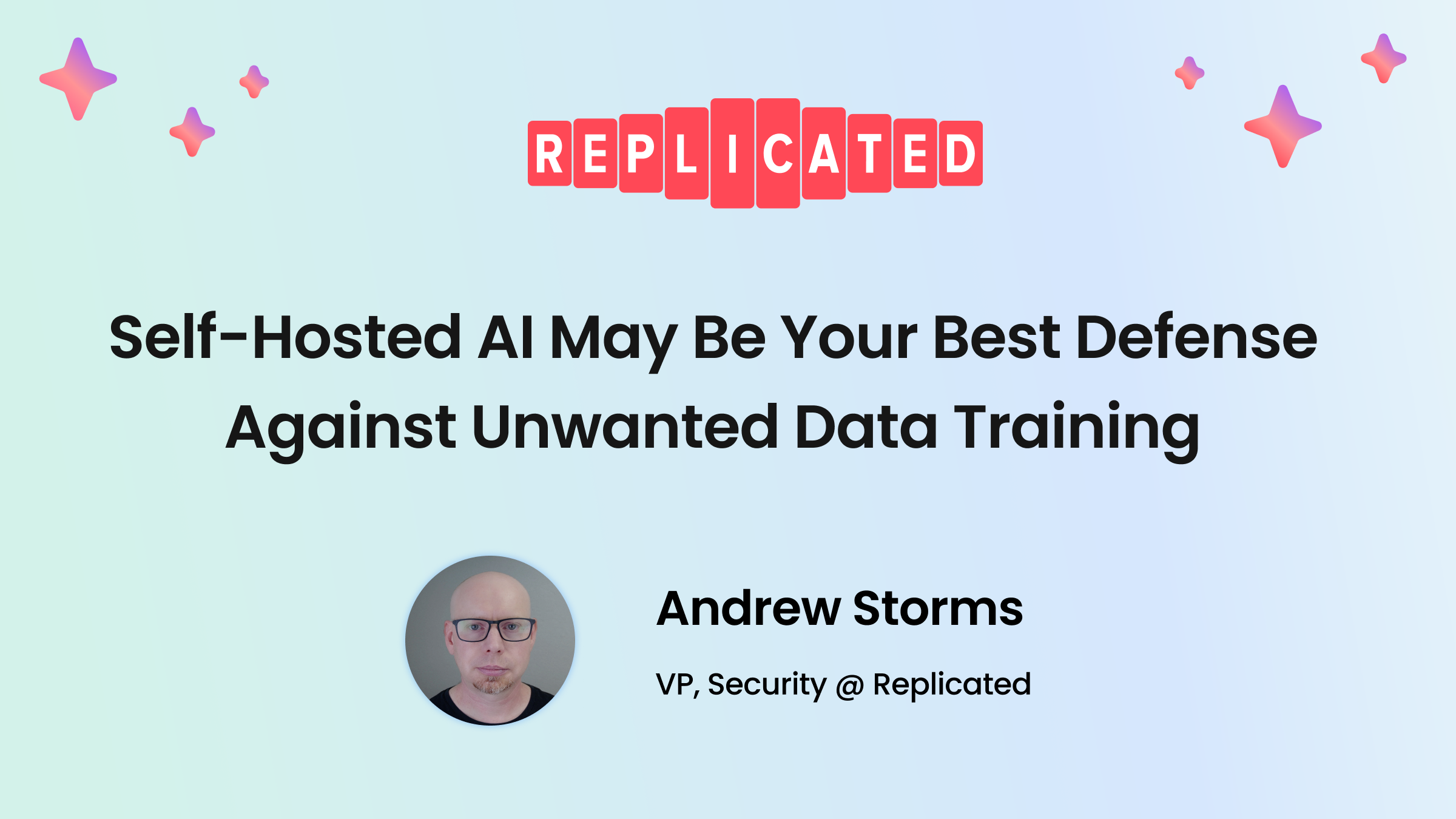
Air-gapped deployments aren’t just for critical infrastructure.
In today's rapidly evolving AI landscape, businesses face a critical dilemma: how to leverage powerful AI capabilities without surrendering control of their sensitive data. As organizations increasingly rely on SaaS AI solutions, many are discovering that standard terms of service often include broad permissions for vendors to use customer data to train their models.
This creates an uncomfortable reality: the very data you're trying to protect might be used to improve services for your competitors or for purposes you never intended.
The Hidden Cost of Convenience
When we use cloud-based AI services, we're making an implicit trade-off. These platforms offer tremendous convenience, rapid deployment, and access to cutting-edge capabilities without massive upfront investment. But that convenience comes with strings attached.
Standard terms of service typically include language allowing providers to use customer data for "service improvement" or "model training" – often with vague boundaries around how this data might be used. Even when vendors promise not to use your data for training, you're left relying on contractual promises rather than technical controls.
A Paradigm Shift: From Trust to Verify
Forward-thinking organizations are increasingly adopting a powerful alternative approach: self-hosted AI deployment. This strategy fundamentally changes the power dynamic between AI vendors and their customers.
Rather than asking "please don't use my data" and hoping vendors comply, air-gapped deployments create technical barriers that make unauthorized data usage significantly more difficult or impossible. Your data remains within environments you control, with the AI provider having limited or no access to your actual information.
Deployment Models for Maximum Control
Several deployment options exist along this spectrum of control:
- Air-gapped systems: Completely disconnected from external networks for maximum security
- True on-premises deployment: The entire AI solution runs on hardware you own and manage
- Private cloud deployment: You use cloud resources but within your own secure environment
Each approach provides concrete technical protections beyond mere contractual assurances. They establish clear data boundaries and give you complete visibility into how your information is accessed and processed.
The Operational Reality
Of course, this approach isn't without its challenges. Self-hosted AI solutions may require:
- Higher operational costs for infrastructure and maintenance
- In-house expertise to manage these systems effectively
- Potentially slower access to updates and new features
- Increased complexity in deployment and scaling
For many organizations, however, these tradeoffs are increasingly worthwhile, finding the control benefits far outweigh the additional operational complexity.
Not Just for Regulation
While regulatory compliance often drives these decisions, the strategic value extends much further. Your proprietary data represents significant competitive advantage and intellectual property. Ensuring this information isn't inadvertently contributed to improving general AI systems that benefit competitors is simply good business.
Making the Transition
If you're considering this approach, start by:
- Auditing your current AI usage and identifying where sensitive data is processed
- Evaluating AI vendors based on their self-hosted deployment options
- Building a clear business case that balances operational costs against data security benefits
- Creating a staged implementation plan focusing first on your most sensitive applications
The Future of Enterprise AI
As AI becomes increasingly embedded in core business functions, the ability to leverage these technologies while maintaining absolute data control will become a critical competitive advantage.
Organizations that develop this capability now aren't just protecting themselves against unwanted data usage – they're building the infrastructure and expertise needed to thrive in an AI-driven business landscape where data sovereignty and security are paramount concerns.
The future belongs to those who can deploy AI at scale without compromising on data control. Self-hosted AI isn't just a defensive measure – it's increasingly the foundation of a forward-looking AI strategy.
